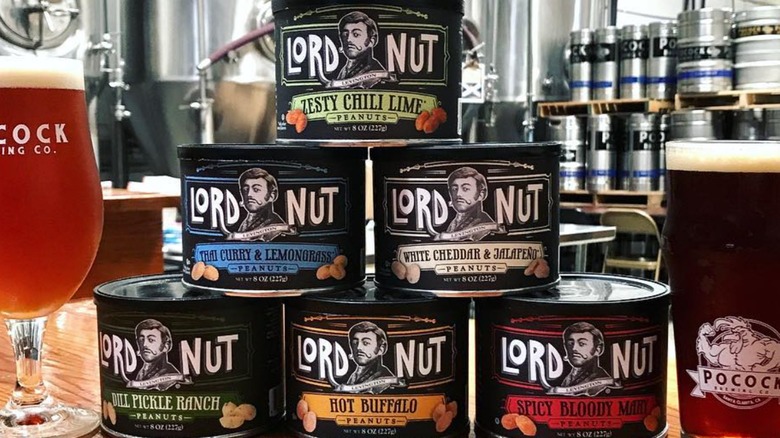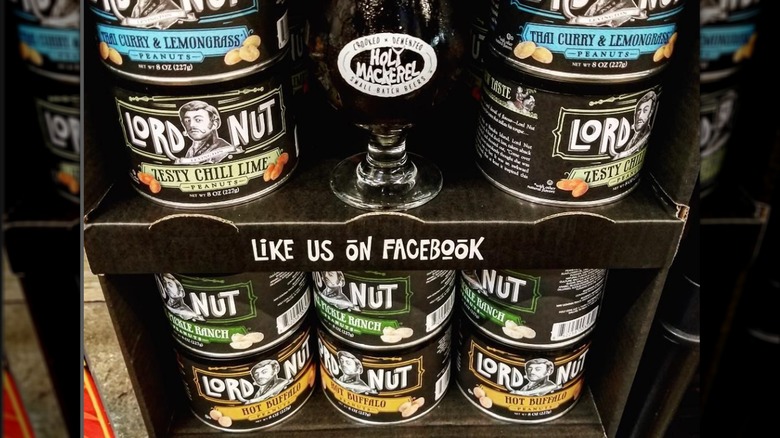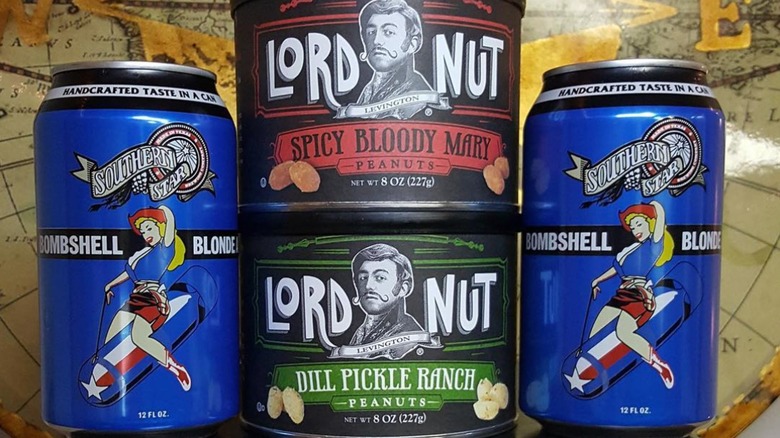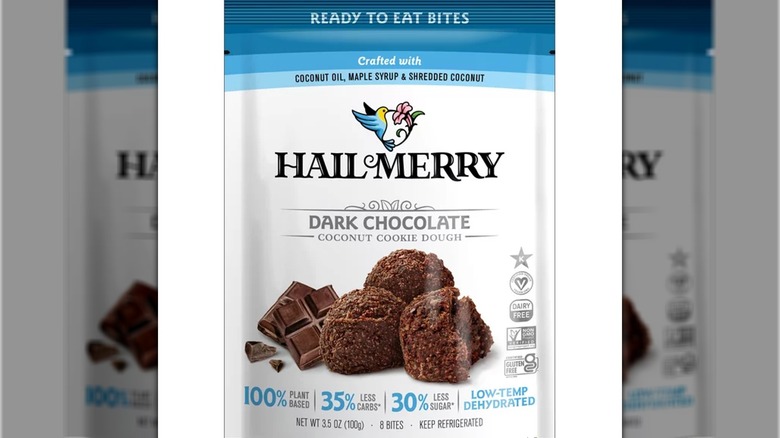Lord Nut Levington: Here's What Happened After Shark Tank
We may receive a commission on purchases made from links.
If you're an entrepreneur or you've watched enough episodes of "Shark Tank," you know it takes years of hard work, dedication, and lots of money to turn an idea into a successful business. When Sanjiv Patel began his fancy peanut business, Lord Nut Levington, in 2011, he focused on creating interesting peanut flavors and clever packaging, not his immigration status.
Originally from London, England, Patel is a Babson College graduate living in Dallas, Texas, where he created the fictional character and storyline behind the business' mascot, Lord Nut Levington, an English revolutionary who resides in the Blandlands (where bland nuts live). Lord Nut is prominently featured on the five cans of flavored peanuts Patel brought to market before appearing on Season 5 of "Shark Tank."
In the United States on an investor immigrant visa (EB-5), Patel was required to meet specific guidelines to satisfy the conditions of his green card, including — investing at least $500,000 and creating ten jobs in the country. While his business was off to a good start, Patel failed to meet the job criteria as the March 2015 deadline approached, so he entered the tank in April 2014, needing more capital to hire staff.
What happened to Lord Nut Levington on Shark Tank?
Three years into the business, Patel invested over $1 million into Lord Nut Levington, satisfying part of his green card criteria. However, with only two employees, Patel needed to hire eight staff members to continue to live and work in the U.S.
Although Lord Nut Levington had lifetime sales of $700,000, with $300,000 in 2013 alone, the business had yet to profit. Patel asked for an initial investment of $500,000 for 30% equity in Lord Nut Levington. With a valuation of $1.5 million, the sharks were not impressed with the business's finances and, one after the other found reasons to pass on the deal.
Kevin O'Leary spearheaded the rejections by insinuating that it's impossible to compete against the top player in the category, Planters, so he was the first shark to pass. Barbara Corcoran didn't see Patel's passion for his product, so she also said no.
Lori Greiner didn't even try the product and refused to invest in a company she couldn't eat. Unlike O'Leary, Robert Herjavec wasn't put off by the idea of competing with Planters. However, he passed since he didn't hear how Patel planned to disrupt the market, which left Patel speechless. Although Mark Cuban gave him a final chance to speak on how he planned to grow sales, Patel couldn't deliver, so he was out too.
Lord Nut Levington After Shark Tank
Although Patel failed to make a deal with the Sharks, Lord Nut Levington persevered, at least for a while. Before appearing on "Shark Tank," Patel's story was profiled by media outlets, including NBC's "Today Show," which increased sales by 1,000 units after its segment aired, so he didn't let this setback stop him. Patel continued to promote his products at trade shows, add new flavors, and increase distribution.
Retailing for $5, Lord Nut Levington was available in 8-ounce cans in six flavors: Spicy Bloody Mary, Dill Pickle Ranch, White Cheddar and Jalapeno, Thai Curry and Lemongrass, Hot Buffalo, and Zesty Chili Lime. Social media posts linked the peanuts to craft breweries, targeting millennials. The company's website and social media accounts continued to develop Lord Nut's handlebar mustache narrative and sell the peanuts online in single flavors and assorted specialty boxes.
By 2015, Lord Nut Levington was in roughly 2,000 stores nationwide with an estimated annual revenue of $1 million. At that time, Lord Nut was distributed to Walmart, HEB, and Albertsons and had recently been picked up by Target.
Fortunately, the company's increased notoriety allowed Patel to stay in the United States without the capital injection from the sharks. Still, within three years, Lord Nut was no longer why Patel stayed in the Dallas-Fort Worth area.
Why did Lord Nut Levington go out of business?
On February 9, 2018, Patel made his last Facebook post as Lord Nut Levington and announced that the business' website was ending. Although the post indicated customers could still purchase the peanuts online at retailers like Amazon and national supermarket chains, including Stop & Shop and Safeway, that didn't last long. Unfortunately, all recent attempts to find Lord Nut Levington's peanuts online have been in vain.
In May 2018, after nine years, Patel closed the business. According to his LinkedIn page, Patel parlayed his experience into consulting for 11 months, where he was the principal at IronClad Consulting Services, LLC. Following that brief stint, he was chief executive officer at Hail Merry, a "never baked" plant-based snack company. Although Hail Merry is still in business, Patel made another move after a year and a half.
Currently, Patel is vice president of corporate operations at Monumental, an independent game development studio in Austin, Texas. He began working for Monumental in June 2022 and does so remotely.




